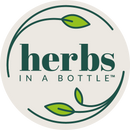Quality
Technical
The technical team has responsibility for Health and Safety, Quality Control and Quality Assurance and now numbers fifteen people. Key staff includes graduate scientists in herbal medicine, biology, chemistry, biotechnology, food science and, even, forensic science. A highly trained team motivated to ensure we deliver quality herbal medicines.
Industry Research
As well as investing in people and equipment we continue to invest in the industry. Herbs in a Bottle participate in initiatives by industry bodies such as the British Herbal Medicine Association (BHMA) and European Herbal and Traditional Medicine Practitioners Association (EHTPA).
We are currently in collaboration with MSc Phyto-pharmaceutical students from the University of East London, exploring optimal methods of extraction of active constituents in Schisandra chinensis. If you have a research idea please contact us directly, we welcome participation in projects and may be able to offer resources to assist.
Quality Control
Herbs in a bottle continue to invest in the laboratory and is one of a very few UK providers of herbal medicine with High Performance Thin Layer Chromatography (HPTLC) and High Performance Liquid Chromatography (HPLC) capabilities. Public scares on adulteration and contamination of herbal products damage the reputation of the industry and compromises patient safety. As practitioners you can be confident that this is an issue we take very seriously.
Before procuring herbs we run a full range of QC tests on a batch sample. These include organoleptic and HPTLC checks for positive identification followed by tests for moisture, total ash and micro testing. If the results are to specification we order the bulk material, once it arrives samples are taken and it is exposed to the same inspections and tests again.
We also run surveillance testing for heavy metals, pesticides and aflatoxins. Aflatoxins are naturally occurring mycotoxins that are produced by species of fungi. Ethanol kills microbes? Not necessarily, all of our tinctures and fluid extracts at 25% ethanol are also tested microbiologically.
Why is this so important to you?
You might be surprised to hear that over a third of pre-purchase samples fail Herbs in a Bottle QC checks, even though we use some of the best distributors in Europe. Occasionally samples of delivered herbs fail our QC tests and are rejected.
We do our absolute best to ensure you receive non-adulterated, uncontaminated herbal products fit for purpose. However, this process is time consuming and certain herbs, especially those organically grown, are susceptible to particular problems. This can mean that we go out of stock until we source a quality batch of herb. Please bear with us if this happens.
When you order Herbs in a Bottle product for your patients you can rest easy in the knowledge that they have been the subject of some of the most rigorous quality testing by a highly qualified professional technical team, dedicated to delivering quality products, fit for purpose.
Sustainability
Herbs in a Bottle aim for minimal environmental impact. There are several practical things already in place, for example, we recycle plastics, glass, paper, card and metals. The PET bottles we use are 100% recyclable and we use Eco Flo biodegradable loosefill in our parcels. It is made from starch, an annually renewable resource that dissolves in water and is suitable for composting.
Our herb waste expand – awaiting info from BIFFA
However, sustainability is far more complex than recycling and carbon offset. The international medicinal and aromatic plant (MAP) industry is incredibly complex and one needs to consider ecological, social and economic sustainability. We know how important it is to use ethically and sustainably sourced herbs and we do what we can to support this.
The fact is up to 90% of the UK’s requirement for MAPs is fulfilled by imported plants. This raises the contradictions of herbal medicine – ‘green’ medicine that is not so green. Within an international market we do make efforts to support good initiatives. For example, purchasing harvests that are Fairwild certified, an innovative programme that considers both ecological and social factors.
The plants we use are a valuable natural resource but unfortunately many species are under threat from excessive wild-harvesting, and in some cases climate change is causing plant migration and extreme weather events causing crop failures. Organic cultivation minimises environmental stressors and we support organic growers wherever possible.
Going forward Herbs in a Bottle are committed to supplying ethically and sustainably sourced herbs for practitioners. As part of our sustainability policy we are embarking on some exciting initiatives with UK growers, in an effort to reduce the carbon footprint of our herbal products.
Our vision is to supply sustainable herbal products to holistic practitioners and so that together we contribute towards creating more sustainable healthcare provision.
